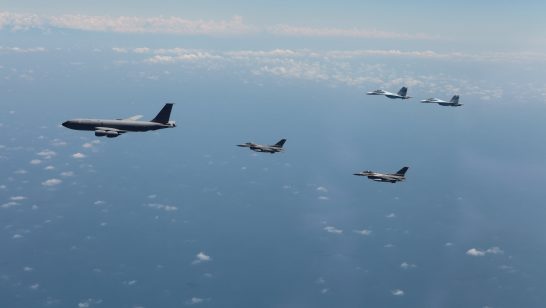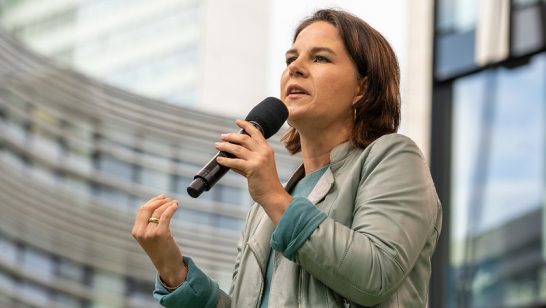
If the usual standards of multilateral organisations are anything to go by, the North Atlantic Treaty Organisation reacted to Russia’s annexation of Crimea in March 2014 with unpredictable alacrity. In response to President Putin’s actions in the Ukraine, NATO quit a decade of soul-searching, overhauled its rapid reaction force, put territorial defence back on the agenda and offered substantive measures of strategic reassurance to its Eastern Allies. President Obama’s visits to the region proceeded to allay the fears and enshrine American commitment in the region. For better or for worse, the Newport Summit also afforded the Alliance with some clarification. In lieu of what most of the final declaration laid out in writing, the summit solidified the NATO border at the Western – not Eastern – frontier of the Ukraine.
By the time September came around, the Alliance had possibly changed more in the course of six months than it had since 2002, if not the end of the Cold War. There are still a number of kinks to iron out with Newport’s Readiness Action Plan (RAP), but the 28 Allies did not hide behind preparations, planning and force generation procedures when it mattered. They took the pledges first and left the soul-searching for better days. Needless to say, this is the sensible way to deal with a crisis and there are other multinational organisations which might profitably take a leaf out of NATO’s book.
That being said, postponing the soul-searching should not amount to promptly shelving any and all form of strategic questioning until the next NATO Summit. Surrendering to this bad habit could make the Newport pledges meaningless in practice. This is because perceptions have simply not changed as swiftly as NATO’s strategic posture has. In fact the fundamentals in the West are still very much the same: a passivity of populations in the face of force, an aversion to using it, a dearth in forward thinking, not to mention strategic culture, an inward-looking mentality, a difficulty in understanding how the world works, and an exercise in leadership by European politicians which is patchy at times, brazenly oblivious of history at others.
These ills do not just plague the assumptions about security that NATO operates by. They throw up a number of questions about the latest Newport decisions too. First of all, it shall be interesting to see how long we shall pretend that by creating ever more rapid reaction forces we are addressing the heart of the problem – that is, the inclination we have to use them. It is one thing to point fingers at Europe’s much maligned Battle Groups, but one would be hard pressed to find a high intensity theatre to which NATO’s reaction force (NRF) has been deployed. The issue is therefore roughly the same on both shores of the Atlantic: what willingness is there amongst Western leaders, and by extension their constituents, to use force at all?
In the same way, it is an interesting and novel development that includes cyber attacks under article 5 of the Washington Treaty. But this supposes we have a similar sense of what article 5 means in the 21st century on both sides of the Atlantic, which plainly is not a given. Having the discussion would make it easier to ascertain, for example, what is precisely to transpire when a cyber-attack is launched with the power to cripple an allied country’s vital infrastructure.
Getting a better sense of what is meant by article 5 today has the additional benefit of making it easier to decide what we do not take article 5 to mean. Such a conversation would be particularly useful if – as is fairly plausible – all manner of sub-conventional warfare continues to unsettle Europe’s periphery. As NATO Deputy Assistant Secretary Jamie Shea pointed out at a recent expert gathering at Chatham House, is not the very idea of hybrid warfare, after all, to confuse intelligence, preclude early warning capability, befog anticipation and ultimately circumvent article 5?
As such, it does not seem necessary at present for the Alliance to dig any faster, or any further. In view of the current strategic context, it need not increase the pace of the Newport measures provided they are fully implemented. Nor need it pronounce any further geographical commitments which it is in no position to genuinely act upon. It could do, however, with digging a little deeper to ponder the implications of the current set of measures.
In 2008, the analyst Peter van Ham coined the term Madonna curve. Its purpose was to measure the ability of an organisation to reinvent itself and keep up with the times. He proceeded to call for the Alliance to take a leaf out of Madonna’s book. A year ago, NATO still arguably gave the unwieldy impression of an array of sovereign nations squinting at the crises thrown its way by a new century, on the off-chance it might decipher raison d’être. On the whole, it seems that NATO 2014 has vastly outperformed the eponymous pop star. But for NATO to be the consummate bright young thing again, it shall need another good old think.
The opinions articulated above represent the views of the author(s), and do not necessarily reflect the position of the European Leadership Network or any of its members. The ELN’s aim is to encourage debates that will help develop Europe’s capacity to address the pressing foreign, defence, and security challenges of our time.



